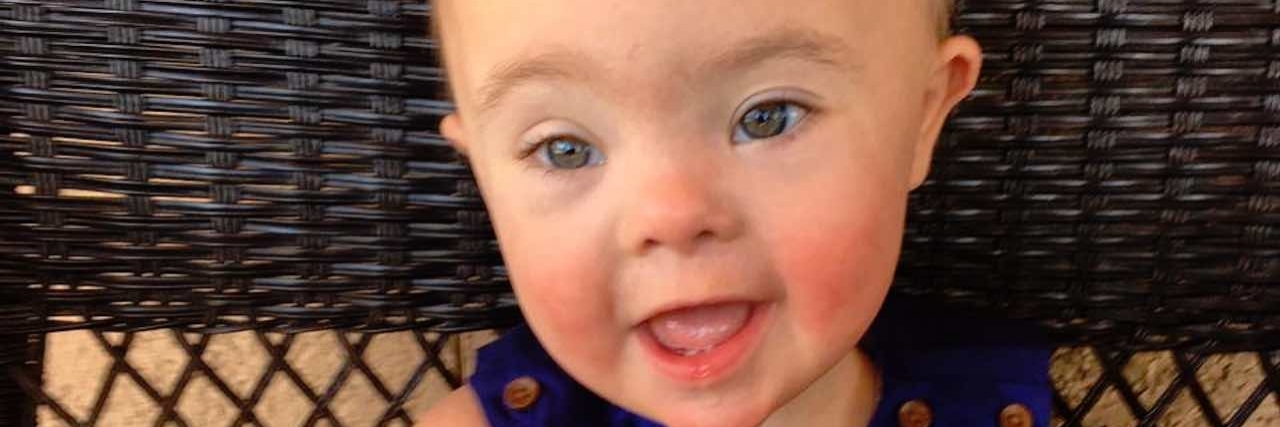A Rebuttal to a Harvard-trained OB-GYN on Down Syndrome Diagnosis Ethics
Recently a mother of a child with Down syndrome, Courtney Baker, mailed a letter to her former OB-GYN that went viral. In the letter she expressed sadness that after she informed her physician she would be continuing her pregnancy, the doctor asked her to reconsider because the child would decrease the quality of her family’s life.
Soon after the letter spread around the internet, a Harvard-trained OB-GYN, Amy Tuteur, wrote a response on Time.com titled, “Not Discussing Down Syndrome Complications is Unethical.” As a mother of a child with Down syndrome, I agree.
It is unethical for a doctor to not discuss complications associated with Down syndrome. Children with Down syndrome will likely experience developmental delays, are more prone to heart defects, need to be screened every six-months for thyroid issues, among other potential health complications — all things an expecting parent needs to know.
However, even more unethical than not telling a parent about possible complications, is telling a mother her child will lower the quality of her own life.
Even more unethical than that is trying to sway a patient to end a pregnancy because of a personal opinion about how a family may be affected because of a Down syndrome diagnosis.

This mother’s story is not an uncommon one. When my doctor told my husband and me our son would be born with Down syndrome — he gave us the typical two options — abort or continue — but then a shocking third. He said, “You don’t have to be a hero. You can have the baby here (where there was no NICU and it appeared our son had a potential heart defect) we can keep the baby comfortable but not do anything drastic that would prolong the baby’s life.”
I tell you this story because it’s why I became the Communications Director for the Down Syndrome Diagnosis Network. We are an organization devoted to creating an unbiased, family-centered diagnosis experience that contains up-to-date information about Down syndrome. DSDN also serves as a support network for new parents. Thankfully we see many positive diagnosis stories within our organization, but unfortunately we see many negative ones like my own and Bakers’. Research shows only 11 percent of women who receive a prenatal diagnosis consider their experience a positive one.
In Tuteur’s piece she argues there is definitely a wrong way to deliver a diagnosis, but it is much more difficult to deliver a diagnosis the right way because every patient comes from different backgrounds and holds different beliefs. But in Baker’s letter, she is not talking about the diagnosis; she is talking about what came after: a clear bias that Down syndrome would affect her family in a negative way, that Down syndrome meant a lower quality of life — a life not worth living.
Who is to say a person with Down syndrome will have a low quality of life when a recent study found that 99 percent of people were happy with their lives? When it comes to the quality of life for the family, 96 percent of siblings said they felt affectionate towards their sibling with Down syndrome, and studies show divorce rates are actually lower in families who have a child with Down syndrome.
Down syndrome occurs in one out of every 691 live births. It is a common genetic condition becoming more detectable during pregnancy. OBGYN’s have a responsibility to deliver the diagnosis with the most current information and without bias. There are nationally recognized guidelines on how to do this, but clearly these guidelines are not being followed in most cases, certainly not in Baker’s. This isn’t all that surprising considering a study found that 40 percent of junior fellows felt their training for a prenatal Down syndrome diagnosis was “barely adequate or nonexistent.” In an anonymous survey only 63 percent of physicians said they tried to be unbiased, while 13 percent of doctors admitted to emphasizing the negative aspects of Down syndrome so parents would elect for termination.
Hopefully the attention Baker’s story created will push this very real issue to the forefront. Despite Down syndrome being one of the most common genetic issues to be diagnosed prenatally and despite there being guidelines for physicians to follow, a gap clearly exists when it comes to properly delivering a Down syndrome diagnosis. No one can determine how a family’s quality of life will change because of a baby, not even if that baby has Down syndrome.
If you would like to write a letter to your doctor about your diagnosis experience, the Down Syndrome Diagnosis Network can help — you can even do it anonymously through our feedback program. Go here to learn more.
If you are a physician looking for more information on how to deliver a prenatal or postnatal Down syndrome diagnosis, go here for access to multiple resources.
This post originally appeared on News Anchor to Homemaker.
The Mighty is asking the following: Describe a moment you were traveling that was either incredibly challenging or where you faced adversity. Check out our Submit a Story page for more about our submission guidelines.
Have you seen the first film with a national release to star a person with Down syndrome? Check out the film “Where Hope Grows” today!

